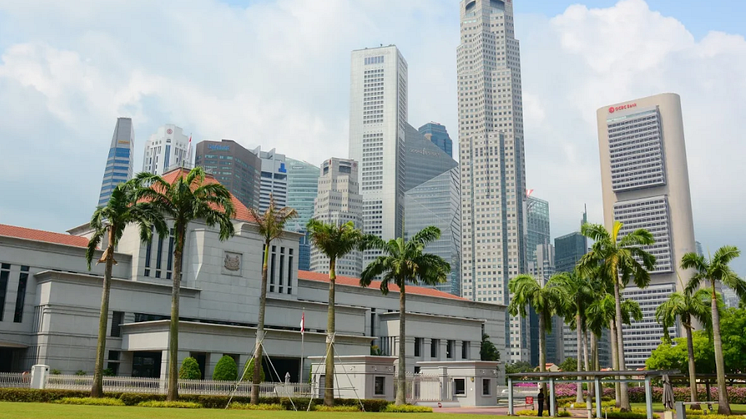
Press release -
PwC’s response to the Ministerial Statement on 17 August 2020
Singapore, 17 August 2020 – The following comments are responses from PwC Singapore to the Ministerial Statement by Deputy Prime Minister Heng Swee Keat on 17 August 2020:
Dr Wilson Chew, Partner, Entrepreneurial and Private Business (Strategy), PwC Singapore:
周发财(博士), 企业家客戶部合伙人,普华永道新加坡
On the impact of the Statement on SMEs - “It remains heartening that the government remains fervent on protecting jobs and creating new worker opportunities.
The Jobs Support Scheme, or JSS, indeed addresses this fervency and the government’s extension of the JSS by up to seven months, covering wages paid up to March 2021 will be welcomed by SMEs
Demand in the global, regional and local contexts have regressed significantly. This severe demand decrease has negatively impacted businesses’ revenues. Amongst fast-growing medium enterprises, this regression appears to vary between 20% to 70% and we've seen the majority of firms finding themselves somewhere in the middle.
The JSS extension will go a long way in helping SMEs to not just tie over a very difficult period but also to be able to retain the talent that is needed in the process of re-engineering and restructuring their business models.
Secondly, we also want to see new growth in those enterprises that have successfully transformed themselves, be able to address new demands as the market recovers with renewed workers who are reinvented and re-skilled with new competencies.”
Martijn Schouten, Southeast Asia People and Organisation Consulting Leader, PwC:
東南亞人才和组织变革管理咨询主管合伙人,普华永道
On the Jobs Growth Incentive - “While certain sectors are grappling with a surplus of workers due to COVID-19, slowing these sectors down dramatically, other sectors are still hiring as they see a need for workers due to specific jobs being high in demand.
Subsidising employers in the latter category is a concrete incentive to help with moving people who are in jobs-at-risk into jobs that see a surge in demand. While the sectors may already be hiring, the subsidy will encourage employers to take on local workers, in particular, supporting matured workers over 40 who are at higher risk of displacement due to digital disruption.”
On the Jobs Support Scheme - “It has been a while since the Jobs Support Scheme was first announced and as the scheme was intended to lapse in August, extending the Jobs Support Scheme until March provides businesses with some additional certainty to plan their workforce expenses for the next few months. This also gives the government some time to better understand the mid- to longer-term impact of COVID-19 on our local economy.”
On the temporary redeployment programme – “One of the measures which is quite unique is the temporary redeployment programme scaled up for workers in the aviation sector. While this is a temporary solution to help workers, the sector requires a more fundamental solution to deal with the longer-term effect of COVID-19. For instance, the sector will accelerate automation and digitisation initiatives to further reduce direct face-to-face interaction and minimise risk of infection in doing so. Similarly, we know that there are foreign workers in the sector that are currently unable to enter the country due to travel restrictions. Reskilling of workers that are currently not being deployed or see their roles being displaced to take on jobs in demand will help develop a more sustainable workforce transformation across the sector.”
Chris Woo, Tax Leader, PwC Singapore:
胡和坤, 税务主管合伙人,普华永道新加坡
On the measures announced – “On whether the $8b goes far enough, the question is not about the quantum but its impact, which depends on how it is used. This Ministerial Statement is first about addressing the most immediate needs, which rightly focuses on the most relevant measure, i.e. preserving jobs through extending JSS in a targeted fashion.
It was also necessary for DPM to support the most vulnerable industries that form a core of Singapore’s economy to protect valuable assets and skills. We need to ensure the tourism, aviation and aerospace industries remain viable especially as the glimmer of light appears at the end of the tunnel.
A recurring investment is in the transformation of our economy through potential unicorns with help in the form of more capital and mentorship. We will likely see such help increase as more promising ventures come alive.
The government will continue to assess the effect of the cumulative effect of earlier measures announced since February 2020, particularly when some sectors of our economy are showing signs of gradual recovery and proving to be more resilient than others. It is too early to make significant changes as the benefits of such measures pan out.
We also expect more longer term measures to be announced in Budget 2021. Given the global geopolitical scene, trade tensions and the public health situation will unfold over the next few months, as well as the output from other work streams such as the Emerging Stronger Taskforce, National Job Council, and National Wage Council we will likely see more enhancements and new forms of assistance. It is by taking a holistic view of global developments and available local tools that Singapore will be able to maximise the impact of its Budgetary measures.”
Topics
Categories
About PwC
At PwC, our purpose is to build trust in society and solve important problems. We’re a network of firms in 157 countries with over 276,000 people who are committed to delivering quality in assurance, advisory and tax services. Find out more and tell us what matters to you by visiting us at www.pwc.com/sg.
PwC refers to the PwC network and/or one or more of its member firms, each of which is a separate legal entity. Please see www.pwc.com/structure for further details.
© 2020 PwC. All rights reserved



